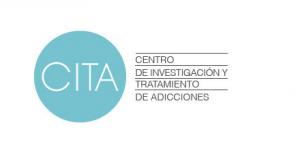Good habits and emotional management in times of crisis
In times of crisis, it should not be forgotten that not everything is economics: we must also focus on psychological well-being. After all, the human mind is made to adapt to a changing environment, and few changes are more radical than a crisis situation derived from a health emergency.
Therefore, in this article we will see what they are the main good habits to achieve good emotional management in times of crisis, with tips and recommendations that are easy to follow on a day-to-day basis.
- Related article: "What is emotional intelligence?"
Good Emotional Management Habits During Crisis
Follow these guidelines to ensure your psychological well-being by enhancing your ability to regulate your emotions.
1. keep in shape
The health of the body is also reflected in the health of the mind. Therefore, when managing emotions well, you have to make sure that our physical condition does not predispose us to expose ourselves to situations that cause us discomfort.
To do this, exercising regularly is key. Physical activity not only helps us to disconnect and gives us a pleasant sensation (as long as it is a moderate effort); In addition, aerobic-type exercises protect against
depression and anxiety, as long as we practice them regularly. Dedicating about three sessions a week of about 40 minutes should be enough.2. Practice Mindfulness
Mindfulness is a set of practices inspired by Vipassana meditation, an activity of a traditional nature in many regions of South Asia. These exercises allow us to put our problems in perspective and not let fear and anguish paralyze us in the face of problems that we know we have. It is often used as a tool against stress and persistent low mood.
- You may be interested: "The 4 types of Mindfulness and their characteristics"
3. Sleep well
Lack of sleep has a serious impact on our ability to regulate emotions and reason. In fact, its negative effects on the human mind are so significant that not sleeping well causes the risk of developing a wide variety of psychological disorders, especially depression, addictions and anxiety.
4. Keep your attention fixed on a goal
In times of crisis it is easy to have the feeling that time is wasted, and this greatly disrupts the emotional balance: it often goes hand in hand with problems with self-esteem, with thoughts of the type "I am not worth anything" not knowing what to do in the absence of alternatives from which to choose in terms of work, leisure, etc. Therefore, in order not to lose your way, it is important not to stop carrying out projects and not to stop learning, not only professionally, but above all personally.
5. Fight rumination
Psychological rumination is what we popularly call "not being able to get something out of one's head", especially when that thought or mental image has a disturbing effect, generates anguish or restlessness. Over time, rumination weakens us, and as much as we try to stop thinking about it, we cannot: trying to suppress its presence makes us more obsessed with its content, giving it power to influence us.
Fortunately, it is not impossible to make rumination leave us alone. For example, Mindfulness exercises help make those recurring thoughts go away. turning off, and also certain techniques of cognitive-behavioral therapy and Acceptance Therapy and Commitment. The key is not to try to eliminate rumination, but to provisionally accept its presence and the discomfort that it generates, but without giving it more prominence than necessary and being able to focus the mind on other things.
6. Don't forget personal relationships
It is much easier to cope with the emotional impact of the crisis if we do it in the company of people important to us. In fact, while people who tend to interact more tend to be happier, loneliness is associated with both physical and psychopathological health problems.
Of course, having a life rich in social relationships does not imply having many friends; simply, in having people in whom we trust and with whom there is a reciprocated affection, and with whom we can share free time.
Are you looking for psychological help in the face of the crisis?
If you need professional psychological assistance, you can contact our team of psychologists. At PsicoTools we have face-to-face or online psychotherapy services for people of all ages, as well as training workshops on topics related to emotional management: Mindfulness, relaxation techniques, etc. To see our contact details, click this link.
Bibliographic references:
- Dimidjian, S.; Hollon, S. D.; Dobson, K. S.; Schmaling, K. B.; Kohlenberg, R. J.; Addis, M. E., & Jacobson, N. S. (2006). Randomized trial of behavioral activation, cognitive therapy, and antidepressant medication in the acute treatment of adults with major depression. Journal of Consulting and Clinical Psychology, 74 (4): pp. 658 - 670
- Freeman, D. et. to the. (2017). The effects of improving sleep on mental health (OASIS): a randomized controlled trial with mediation analysis. Lancet Psychiatry, 4 (10): pp. 749 - 758.
- Garland, E.L. & Howard, M.O. (2018). Mindfulness-based treatment of addiction: current state of the field and envisioning the next wave of research. Addict Sci Clin Pract. 2018;13(1): 14.
- Merino, M. et al. (2016). Healthy sleep: evidence and guidelines for action. Official document of the Spanish Sleep Society, 63 (2).
- Vallès, A., and Vallès, C. (2000): Emotional intelligence: Educational applications. Madrid, Editorial EOS.

